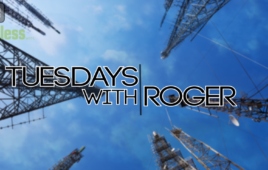Bidding in the first round of the FCC’s forward spectrum auction on Tuesday clocked in at $8.5 billion, hitting a mark that the AWS-3 auction took 11 rounds to achieve.
Even so, demand – quite expectedly – varied wildly.
As pointed out by BTIG’s Walter Piecyk in a Wednesday research note, while demand in certain parts of the country vastly exceeded supply, the reverse was true in the majority of markets.
In the top five markets in the country – New York, N.Y., Los Angeles, Calif., Chicago, Ill., San Francisco, Calif., and Baltimore, Md./Washington, DC – demand for spectrum exponentially outstripped supply. New York and Los Angeles saw particularly high demand, with 33 bids for just 10 blocks of spectrum in the former and 20 bids for five blocks of spectrum in the latter.
Bidding in less desirable markets, however, was less enthusiastic.
Out of the FCC’s 426 markets, demand fell short of supply in 379 of them – or almost 89 percent. That 89 percent includes smaller, but major West Coast cities like Seattle, Wash. And Portland, Ore., which only received six bids and five bids respectively for 10 blocks of available spectrum. Demand in Denver, Colo., Tampa, Fla., and Las Vegas, Nev., also lagged behind supply.
As a result, more than half – 54 percent – of available spectrum blocks came out of round 1 without corresponding bids, Piecyk said.
All told, the FCC received bids amounting to $17 billion including the bids beyond availability in larger markets, Piecyk said. The $8.5 figure represents bids for the number of blocks that can actually be won, he said.
Going forward, the clock price in markets like New York where demand exceeds supply will continue to rise until enough bidders drop out to make demand equivalent to the supply. Prices in markets where demand lags supply will remain the same. Bidders are up against a price target of $86.4 billion, set by broadcasters in the reverse auction. If demand does not reach supply, then a second reverse auction will be held with a lower clearing target of 90 MHz, the FCC has said.
Piecyk said BTIG expects bidding in round 2 will increase to $8.8 billion “unless bidders start spreading their $17 billion of bidding units/activity over more markets.”
Though the first round of bidding on Tuesday lasted six hours, subsequent bidding rounds are slated to be two hours apiece. There will be two rounds each day going forward, starting at 10 a.m. and 2 p.m.
Filed Under: Telecommunications (spectrums)




